|
|
|
Книги издательства «Oxford University Press»
|
Violence and unrest are sweeping through Roman Britain. Justin and Flavius find themselves caught up in the middle of it all when they discover a plot to overthrow the Emperor. In fear for their lives they gather together a tattered band of men and lead them into the thick of battle, to defend the honour of Rome. But will they be in time to save the Emperor... Rosemary Sutcliff's books about Roman Britain have won much acclaim and the first in the trilogy, The Eagle of the Ninth, has now sold over a million copies worldwide. The author writes with such passion and with such attention to detail that the Roman age is instantly brought to life and stays with the reader long after the last page has been turned. |
|
Exciting new author Tatyana Feeney has created something very special. In just a very few words and with the simplest of illustrations, she speaks to toddlers everywhere who are inseparable from a special toy or object. Small Bunny loves Blue Blanket. Everything he does, he does with Blue Blanket. It's with him when he's on the swings, in the sandpit, when he's painting, and when he's reading. But Mummy has plans for Blue Blanket. It needs a wash! Poor Small Bunny is forced to endure a heart-rending episode watching his blanket go round and round in the washing machine. Later, when a clean and unfamiliar blanket is brought down from the washing line and put into Small Bunny's little paws, he is not happy. How will he restore Blue Blanket to just the way it was before? This time it's Small Bunny who has plans! |
|
You're smugglers? That ain't what we call ourselves. His voice rumbled deep in his chest. We're Gentlemen o' the Night. In the autumn of 1720, Isabelle does something which changes her life for ever. But though Isabelle has fled, she is still trapped. If the secret of her previous life is revealed then the smugglers who have found her will not let her stay on board The Invisible — and she has nowhere else to go. To survive, Isabelle must help her captors — even though she detests what they do. But soon her principles are thrown into confusion, as she discovers that outwitting the King's Men fills her with excitement. Soon she finds herself becoming fiercely loyal to the crew — and to one mysterious smuggler in particular... |
|
Fin is devastated by guilt when his sister, Ella, is kidnapped. She is snatched away from the house in the middle of a storm. As the kidnappers make their demands, Fin's guilt is replaced by a fierce determination to find his sister by whatever means he can, and bring the criminals to justice. But as the drama unfolds, a complex web of family secrets is revealed. It emerges that Ella's kidnapping is revenge for mistakes Fin's father made, years before. The consequences will change all their lives forever. |
|
What wears a sock on its bottom? Your leg, of course! Come inside for more hilarious jokes and rhymes, as well as teasing tongue twisters, ridiculous riddles, loopy limericks, batty booklists, excellent excuses, and much much more. You'll laugh your pants off! |
|
Captain Titus Oates, hero of the Antarctic, has been dead for nearly a century. But not in Sym's head. In there, he is her constant companion, her soulmate, her adviser. It is as if he walked out of the Polar blizzard and into her mind. In fact, if it were not for Titus, life might be as bleak a place as the Antarctic wilderness. When she is taken on a mystery expedition by her eccentric uncle Victor, Sym can't believe her luck. Destination Antarctica-the very place she's always wanted to visit. But Victor has other plans, more sinister than Sym could possibly imagine. Stranded in the most isolated part of the world with her trust in someone she comes to realize is a madman, she must find a way to avoid a gruesome fate. But what should a teenage girl do? Could it be that Titus, the one who perished in that very place, will be the means of her survival? |
|
The white dolphin is a sign that Mum's out there... When they first meet, Kara and Felix can't stand each other. But on discovering an injured dolphin calf on the beach they know they must work together to save it. Now friends, they set out to find the truth behind the disappearance of Kara's mother, and to protect the nearby reef. But powerful people don't want them to succeed. And with the odds stacked against them, how can Kara and Felix make their voices heard? |
|
Whizz, bang, orang-utan Hear his mighty roar As he stamps and as he stomps On the jungle floor. John Foster Here is a collection of poems and rhymes for very young children. With themes ranging from funfairs, giants, and favourite foods, to seaside holidays, days in the park, and wobbly teeth, there are poems for every occasion. And the mix of traditional rhymes, limericks, lullabies, and comic verse adds up to an anthology to suit all moods and moments. There are contributions from Shirley Hughes, Quentin Blake, June Crebbin, Spike Milligan, and many, many more. Each poem is accompanied by full colour artwork-from a diverse range of illustrators including Tony Ross, Sue Heap, Lindsey Gardiner, and Stephen Lambert. |
|
Winnie the Witch is very pleased when she turns her cardboard robot into a real one. Beep, beep! But when the naughty robot takes Winnie's wand, things start to get totally out of control. It's up to Wilbur, Winnie's lovable cat, to stop the magical mayhem and save the day. |
|
The only resource for this subject developed with the IB, this course book hones in on source evaluation skills and most closely embodies the IB approach to learning. Fully covering prescribed subjects for the 2008 syllabus and with a bank of source material to develop analytical skills, it includes case studies from all regions to foster international-mindedness. Truly aligned with the learner profile, it is packed with fresh and topical TOK to drive critical thinking. |
|
Through the story of Margaret Hale, the middle-class southerner who moves to the northern industrial town of Milton, Gaskell skilfully explores issues of class and gender in the conflict between Margaret`s ready sympathy with the workers and her growing attraction to the charismatic mill owner, John Thornton. This new revised and expanded edition sets the novel in the context of Victorian social and medical debate. |
|
«This best-selling dictionary is an authoritative and comprehensive source of jargon-free legal information. It contains over 4,700 entries that clearly define the major terms, concepts, processes, and the organization of the English legal system. Entries have been fully updated for this edition to incorporate the latest legislation, including entries on foreign national offenders, Police and Crime Commissioners, corporate manslaughter, and settlement agreements, and there is a useful Writing and Citation Guide that specifically addresses problems and established conventions for writing legal essays and reports. Now providing more information than ever before, this edition features recommended web links for many entries, which are accessed and kept up to date via the Dictionary of Law companion website. Described by leading university lecturers as, «the best law dictionary» and, «excellent for non-law students as well as law undergraduates», this classic dictionary is an invaluable source of legal reference for professionals, students, and anyone else needing succinct clarification of legal terms. Focusing primarily on English law, it also provides a one-stop source of information for any of the many countries that base their legal system on English law.» |
|
What is capitalism? Is capitalism the same everywhere? Is there an alternative? The word 'capitalism' is one that is heard and used frequently, but what is capitalism really all about, and what does it mean? The book begins by addressing basic issues such as 'what is capital?' before discussing the history and development of capitalism through three detailed and absorbing case studies ranging from the tulipomania of seventeenth-century Holland to the recent Enron crisis in America. Fulcher addresses important present day issues, such as New Labour's relationship with capitalism, the significance of global capitalism, and distinctive national models of capitalism. He also explores whether capital has escaped the nation-state by going global, emphasizing that globalizing processes are not new. He discusses the crisis tendencies of capitalism, such as the Southeast Asian banking crisis, the collapse of the Russian economy, and the 1997-1998 global financial crisis, and asks whether capitalism is doomed. The book ends by asking whether there is an alternative to capitalism, discussing socialism, communal and cooperative experiments, and the alternatives proposed by environmentalists. ABOUT THE SERIES: The Very Short Introductions series from Oxford University Press contains hundreds of titles in almost every subject area. These pocket-sized books are the perfect way to get ahead in a new subject quickly. Our expert authors combine facts, analysis, perspective, new ideas, and enthusiasm to make interesting and challenging topics highly readable. |
|
Featuring a dictionary and thesaurus combined, the Pocket Oxford Dictionary and Thesaurus provides the essential language reference help you need in a single portable volume. The second edition of this reference book has been completely redesigned so that it is easier to use. The thesaurus entry for a word now immediately follows the dictionary entry, so that you do not need to hunt around the page for this information. We have also made the text more open and accessible, so that you can find the word you are looking for quickly and easily. New words and new meanings have been added to the text, so you can be sure that you are using a reference book that is up-to-date and reflects the developments of the English langauge. With over 90,000 words, phrases, and definitions, and 115,000 synonyms and antonyms, the Pocket Oxford Dictionary and Thesaurus provides all the everday language help you need. This edition also contains new Word Link features, helping you find words that are closely associated with each other. For example, the Word Link at environment tells you that the study of the natural world is called ecology, and the Word Link at cave informs you that the exploration of caves is known as speleology or potholing. The new centre section of the dictionary and thesaurus contains encyclopedic information such as lists of countries, capitals, and kings and queens, helping you to broaden your knowledge, and to find solutions for quizzes and puzzles. The Pocket Oxford Dictionary and Thesaurus is an invaluable tool for anyone who wants a portable quick reference tool useful both for general ready reference and for quizzes and crossword puzzles. |
|
Including more than 11,000 definitions, this authoritative and up-to-date dictionary covers all branches of psychology. Clear, concise descriptions for each entry offer extensive coverage of key areas including cognition, sensation and perception, emotion and motivation, learning and skills, language, mental disorder, and research methods. The range of entries extends to related disciplines including psychoanalysis, psychiatry, the neurosciences, and statistics. Entries are extensively cross-referenced for ease of use, and cover word origins and derivations as well as definitions. More than 100 illustrations complement the text. This fourth edition has incorporated a large number of significant revisions and additions, many in response to the 2013 publication of the American Psychiatric Association's latest edition of Diagnostic and Statistical Manual of Mental Disorders, bringing the Dictionary fully up to date with the most recent literature of the subject. In addition to the alphabetical entries, the dictionary also includes appendices covering over 800 commonly used abbreviations and symbols, as well as a list of phobias and phobic stimuli, with definitions. Comprehensive and clearly written, this dictionary is an invaluable work of reference for students, lecturers, and the general reader with an interest in psychology. |
|
Includes: The Tinder-Box; The Princess and the Pea; Thumbelina; The Little Mermaid; The Emperor's New Clothes; The Steadfast Soldier; The Ugly Duckling; The Snow Queen; The Little Match-Girl. |
|
Is a tower block, your unmade bed, your lavatory basin, or the bicycle chained to the gate next door a work of art? Why should a novel have a beginning, a middle, and an end; or even a story? Whether we recognise it or not, virtually every aspect of our life today has been influenced in part by the aesthetic legacy of Modernism. In this Very Short Introduction Christopher Butler examines how and why Modernism began, explaining what it is and showing how it has gradually informed all aspects of 20th and 21st century life. Butler considers several aspects of modernism including some modernist works; movements and notions of the avant garde; and the idea of 'progress' in art. Butler looks at modernist ideas of the self, subjectivity, irrationalism, people and machines, and political definitions of modernism as a whole. |

|
The Mongols carved out the largest land-based empire in world history, stretching from Korea to Russia in the north and from China to Syria in the south in the thirteenth century. Along with their leader Chinggis Khan they conjure up images of plunder and total destruction. Chinggis and his descendants introduced a level of violence that had perhaps never been seen in world history. Although this book does not ignore the devastation and killings wrought by the Mongols, it also reveals their contributions. Within two generations, they developed from conquerors and predators seeking booty to rulers who devised policies to foster the economies of the lands they had subjugated. Adopting political and economic institutions familiar to the conquered populations and recruiting native officials, they won over many of their non-Mongol subjects. Mongol nobles were ardent patrons of art and culture. They supported and influenced the production of Chinese porcelains and textiles, Iranian tiles and illustrated manuscripts, and Russian metalwork. Their most significant contribution was to foster the greatest contacts among diverse civilizations in world history. The Mongol peace they imposed on much of Asia and their promotion of trade resulted in considerable travel and relations among numerous merchants, scientists, artists, missionaries, and entertainers of different ethnic groups. It is no accident that Europeans, including Marco Polo, first reached China in this period. Eurasian and perhaps global history starts with the Mongol empire. Rossabi follows the Mongol empire through to collapse due to internal disunity. Struggles for succession and ill-planned and expensive military campaigns ultimately tore apart one of the most influential empires in world history. |

|
Trust — our belief in the truth or reliability of someone or something — lies at the very heart of our relationships, our society and our everyday lives. Much of the time we take it for granted. And yet trust, or the lack of it, is becoming an increasingly prominent issue in public life: politicians say they want to rebuild trust in politics; people look for new ways to trust each other in a world where relationships are easier to start and harder than ever to sustain; and we are no longer sure how much we trust experts on issues like the safety of food or medicine. This short but thought-provoking book reveals why scientists, social scientists, and philosophers no longer take trust for granted. Beginning with some fascinating biological puzzles about the origins of trust — how cooperation can evolve from 'selfish genes', and how language could have evolved when 'words are cheap' and we have such a capacity to deceive each other — Marek Kohn explores many different perspectives from the fields of science, sociology, economics, and politics, to draw out the wider implications for trust in human society today. The book ends on a personal note, concluding that our material prosperity is not matched by the quality of our lives and relationships, but that, if we understand what makes trust possible, and why it matters, then we will live better lives in a fast-moving, fast-changing, globalized society. |
|
For thirty years, Linda Greenhouse, the Pulitzer Prize-winning author of The U.S. Supreme Court: A Very Short Introduction, chronicled the activities of the justices as the Supreme Court correspondent for the New York Times. In this concise volume, she draws on her deep knowledge of the court's history as well as of its written and unwritten rules to show the reader how the Supreme Court really works. No mere work of civics, this is an institutional biography of a place and its people — men and women who exercise great power but whose names and faces are unrecognized by many Americans and whose work often appears cloaked in mystery. How do cases get to the Supreme Court? How do the justices go about deciding them? What special role does the chief justice play? What do the law clerks do? How does the court relate to the other branches of government? Greenhouse answers these questions by depicting the justices as they confront deep constitutional issues or wrestle with the meaning of confusing federal statutes. The Supreme Court today, housed in a majestic building on Capitol Hill, with more than 400 employees, bears little resemblance to the ill-defined institution the Constitution's Framers launched with the expectation that it would be the weakest, least dangerous, of the three branches. The court put to use the independence the Framers gave it, and in many ways has continued to define itself. This book is the court's story. |
|